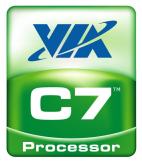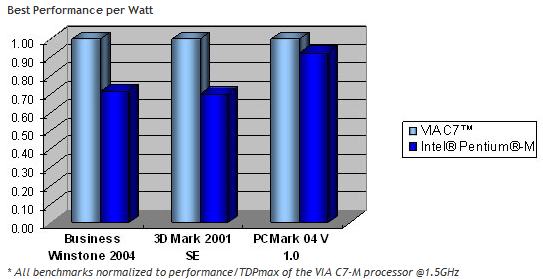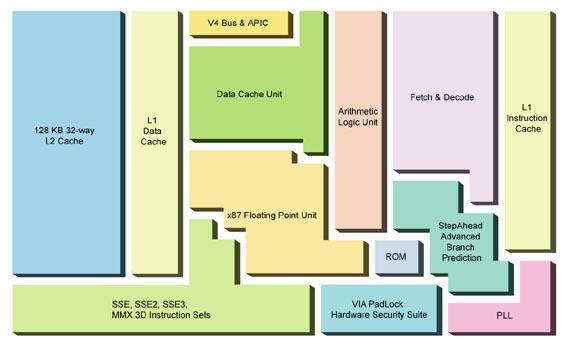

The VIA C7 processor line is available in 1.5GHz, 1.8GHz and 2.0GHz. The processors use a 800MHZ FSB, have SSE2 and SSE3 support and both 128KB L1 and L2 on-die cache memory.
The C7 processor is aimed at mainstream thin and light notebooks, mini PCs, green clients, consumer electronic devices like media centers and PVRs, high density server and server appliances that need low power, low heat, high performance and high security.
The VIA C7 processor also signals an era of practical pervasive security due to the industry-leading security features of the VIA PadLock Hardware Security Suite, a family of advanced security technologies providing on-die hardware acceleration for key cryptographic operations.
In addition to the world's best random number generator (RNG) and AES Encryption Engine in the previous processor generation, the VIA C7 processor adds SHA-1 and SHA-256 hashing for secure message digests, and a hardware based Montgomery Multiplier supporting key sizes up to 32K in length to accelerate public key cryptography, such as RSA.
The VIA C7 also provides execute protection (NX), providing protection from malicious software such as worms and viruses, and is used in Microsoft Windows XP with SP2. Integrating security directly onto the processor die ensures speeds and efficiency many times that available in software, yet with negligible impact on processor performance.
The C7 chip will go into mass production by the end of this quarter. Benchmark data isn't available yet, besides the chart VIA provided comparing its C7 processors to Intel's Pentium M.

